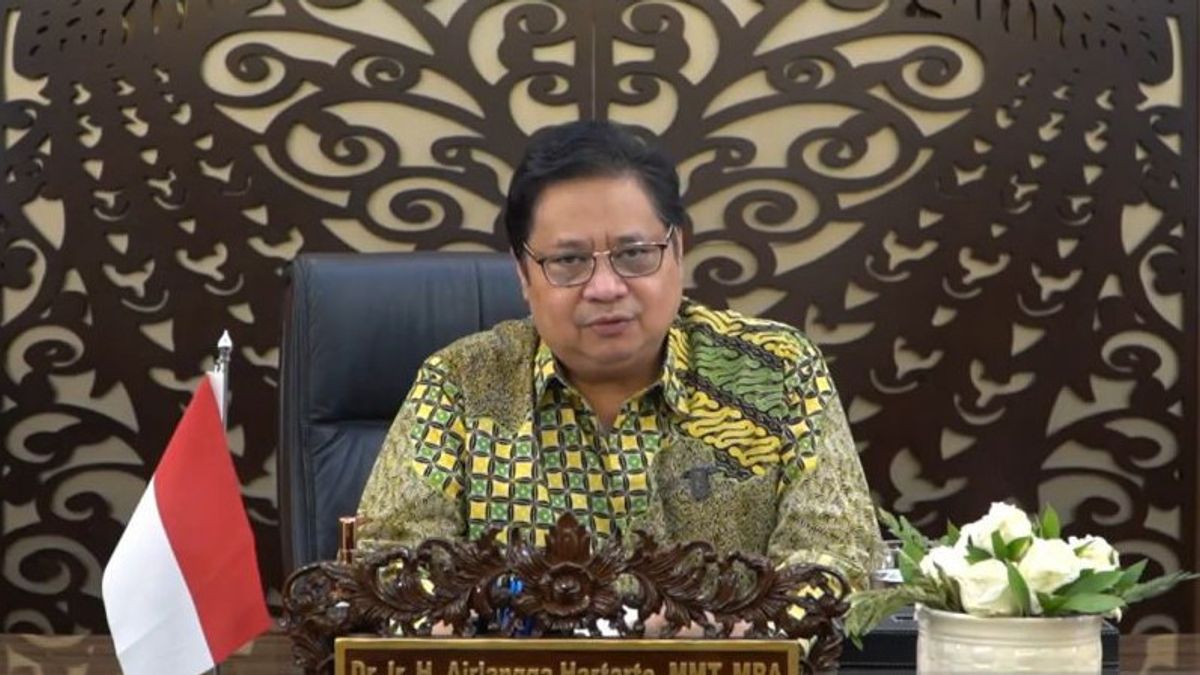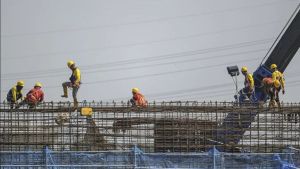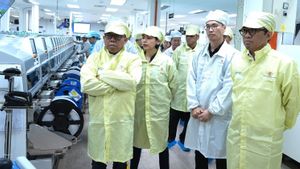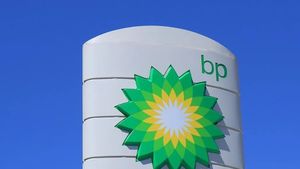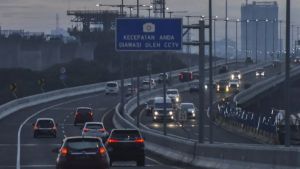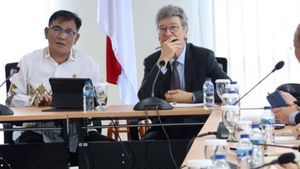JAKARTA - Coordinating Minister for the Economy Airlangga Hartarto said the pandemic situation which was under control had boosted the domestic economy in the third quarter of 2021, so that it was able to grow 3.51 percent compared to the third quarter of 2020. The Government's quick response in controlling the surge in cases of delta variants at the beginning of Quarter III-2021 could re-strengthen the momentum of national economic recovery.
The rapid recovery of public confidence in carrying out economic activities has maintained the momentum for recovery on the demand and supply sides. Accelerated realization of the results of the PEN Program budget refocusing following the dynamics of the pandemic during Quarter III-2021 has also encouraged government consumption to grow to 0.66% (yoy).
Furthermore, the pandemic situation which has begun to be controlled has prompted an increase in domestic economic activity. Household consumption grew by 1.03% (yoy) and consumption of Non-Profit Institutions Serving Households grew by 2.96% (yoy). Gross Fixed Capital Formation (PMTB) also grew by 3.74% (yoy) in line with the increasing production capacity of the business world. "The effectiveness of implementing PPKM policies and accelerating vaccination are the main pillars," said Coordinating Minister for Economic Affairs Airlangga Hartarto.
The recovery in global demand and rising global commodity prices also boosted Indonesia's international trade activities. Exports grew by 29.16% (yoy) and imports grew by 30.11% (yoy) in Quarter III-2021. Indonesia's trade balance also continued to experience a surplus for 17 consecutive months, until the end of September 2021. The Government's policy strategy during the pandemic in maintaining the supply of exports of the two main commodities, namely coal and CPO, also contributed positively. In addition, maintaining the availability of domestic supplies is also the key to maintaining export momentum amidst rising prices.

"The strengthening of domestic demand after the surge in cases of the delta variant succeeded in boosting performance in several key sectors in the third quarter of 2021," said Coordinating Minister Airlangga.
The Manufacturing Industry Sector as the largest contributor to Gross Domestic Product grew positively by 3.68% (yoy). Other major sectors also grew significantly, including the Trade and Mining Sector which grew by 5.16% (yoy) and 7.78% (yoy). Meanwhile, the Transportation and Warehousing Sector as well as the Accommodation and Mining sector experienced contraction due to the tightening of the PPKM policy as an effort to mitigate the surge in cases of delta variants at the beginning of Quarter III-2021. The information and communication sector as well as health services, which have an important role during the pandemic, have also resumed strengthening growth. The health services sector experienced the highest growth in Quarter III-2021, amounting to 14.06% (yoy).
The recovery of various business sectors in Quarter III-2021 also encourages an increase in employment. As of August 2021, the Labor Force Participation Rate increased to 67.80% and the Open Unemployment Rate decreased to 6.49%, better than 2020. The Manufacturing Industry Sector is the business sector that experienced the largest increase in employment. In addition, the confidence of the business community to start recruiting employees is also reflected in the increase in the percentage of the population working in formal activities by 1.02% (compared to August 2020). In general, efforts to control the pandemic have succeeded in reducing the number of working age people affected by Covid-19 to 21.32 million people in August 2021, better than last year.
Spatially, the majority of regions in Indonesia continued positive growth in Quarter III-2021. The islands of Java and Sumatra, as contributors to the national economy, were able to grow positively by 3.03% (yoy) and 3.78% (yoy). This achievement also occurred on the islands of Kalimantan, Sulawesi, as well as Maluku and Papua. Only the islands of Bali and Nusa Tenggara still experienced a contraction of -0.09% (yoy) due to the lack of recovery in the tourism sector as a result of restrictions on community activities.
Coordinating Minister Airlangga also explained that for the future prospects, in line with the consistent decline in daily Covid-19 cases, the Government has relaxed PPKM more broadly but is still under supervision and disciplined application of the Covid-19 protocol. These conducive conditions have allowed demand to grow and the economy to continue to recover. This is expected to have a positive impact on several key indicators that show good prospects for the economy.
Furthermore, increasing the effectiveness of controlling Covid-19 and continuing various economic recovery programs are expected to be able to maintain the momentum of economic recovery. Thus, domestic demand for the remainder of 2021 will continue to strengthen, as reflected in the Consumer Confidence Index which continues to improve and motor vehicle sales which are expected to continue to grow. In line with that, business activity is also expected to continue to improve, as reflected in the fairly high growth of PMTB, even the level of Indonesia's Purchasing Managers' Index (PMI) in October 2021 has broken its highest record since April 2011 with an expansive level of 57.2. . The Indonesian PMI level illustrates the condition of business activity that has revived throughout Indonesia's manufacturing sector. Indonesia's PMI level is also higher than other ASEAN countries, such as Malaysia (52.2), Vietnam (52.1), Thailand (50.9), and Myanmar (43.3).
The good prospects for the Indonesian economy in the future are also supported by international cooperation that the Government continues to pursue. In a series of meetings of the G20 Summit in Rome Italy, the COP26 Summit in Glasgow-Scotland, as well as a working visit to the United Arab Emirates, the Government continues to promote sustainable economic recovery and development. These various collaborations are also believed to trigger increased investment through various scenarios such as the INA Sovereign Wealth Fund, cooperation in renewable energy, retail and port and toll road infrastructure, health cooperation, and digital technology.
Taking into account various leading indicators at the beginning of Quarter-IV 2021, the pattern of recovery looks similar to the trend in Quarter-II. Coupled with various health indicators that continue to improve and are accompanied by appropriate Government policies and strategies, economic recovery is believed to have positive prospects. With this positive prospect, Indonesia's economic growth is expected to be above the 5% level in the fourth quarter of 2021 and be able to achieve the target of sustainable economic growth going forward.
The English, Chinese, Japanese, Arabic, and French versions are automatically generated by the AI. So there may still be inaccuracies in translating, please always see Indonesian as our main language. (system supported by DigitalSiber.id)
